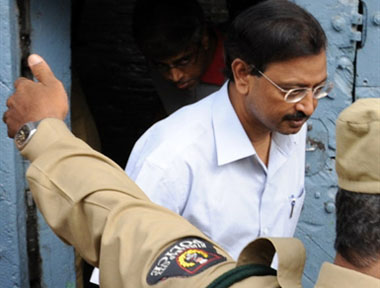The largest corporate scam in India yet is slowly witnessing a closure of sorts with all those who perpetrated the crime getting convicted and sentenced. While there is general criticism about the long drawn out process – six years and three months – to deliver justice, a more pertinent question to ask is: are we prepared, or do we have enough checks and balances, to avoid similar scams now? For the uninitiated, the Rs 14,000 crore Satyam Computer accounting scam broke out when B Ramalinga Raju, the then company chairman, confessed to cooking books, inflating staff count and creating fake bank accounts. He and nine others involved in the crime have been convicted in the case by a special court yesterday. Raju has been sentenced to seven years in jail and slapped with Rs 5 crore penalty. While corporate India may be accused of being too complacent and dismissing the Satyam scam as just an aberration, a section of experts also believe that India has responded well by moving swiftly to learn the lessons from the incident. [caption id=“attachment_2188813” align=“alignleft” width=“380”]  Former Satyam chief B Ramalinga Raju . Reuters[/caption] Amit Bansal, partner, Deloitte Forensic in India, highlights a few things corporate India should do to avoid such frauds. The first and foremost in his list is to ensure greater board oversight. “Typically, what happens is that the board asks the right questions and then relies on responses provided by the management. Instead, a greater degree of scepticism amongst board members and the practice of challenging management assertions can bring in healthy debates of key issues facing the business,” he said. Secondly, independent directors should take active part in decision-making process. “The practice of independent challenge to management comments may help in identifying critical issues earlier than they would normally come to light,” he pointed out. According to him, while drafting the new Companies Act 2013, a lot of learning from cases such as Satyam and others were taken into account. So a number of things have been included in the new Act. Thirdly, he says Indian corporates India should take a proactive approach to mitigate frauds and comply with regulatory requirements. Lastly, companies should report related-party transactions in true spirit, rather than restricting it to regulatory requirements. “This can bring in A greater degree of transparency and governance in the management of business and financial reporting,” he says. It is to be remembered that what brought the scam in Satyam Computers was a related party transaction with its real estate subsidiary Maytas Infra. “If the companies can bring in governance structures wherein business transactions with related parties are reduced to the minimum or if such transactions are inevitable, disclosures that demonstrate at a high level that such transaction was at arms’ length will go a long way in reducing incidences of corporate fraud,” Bansal says. So are we prepared? As Bansal notes, the new Companies Act 2013 has many clauses that seek to avoid such scams. Moreover, as Mohandas Pai, former Infosys official and currently chairman of Manipal Global Education, told the DNA newspaper, the functioning of board of directors is in a much better shape today. “After Satyam, corporate governance has been enhanced. Sebi has issued detailed guidelines for corporate governance and better governance to audit committee. The ICAI also came out with guidelines for greater disclosure of FD (fixed deposits) and assets. Besides these, a lot of other small steps have been taken after Satyam to make the board more accountable and responsible,” he has been quoted as saying in the report. Echoing the views are the analysts who spoke to The Economic Times. “I think a lot of work was done back then to alleviate fear after the scandal happened. But since then, I don’t think people have given it a lot of thought and now that the verdict has come out, I don’t think it’ll have a major impact on the industry,” Frances Karamouzis, vice-president, Gartner has been quoted as saying in an ET report. However, he has also warned that it may be impossible to prevent a scam like Satyam, where “conspiracy and collusion are involved”. “A fraud like this can happen anywhere,” Karamouzis sums up.
India has put in place many checks and balances, but still it will be difficult to detect a scam like Satyam beforehand
Advertisement
End of Article


)

)
)
)
)
)
)
)
)



